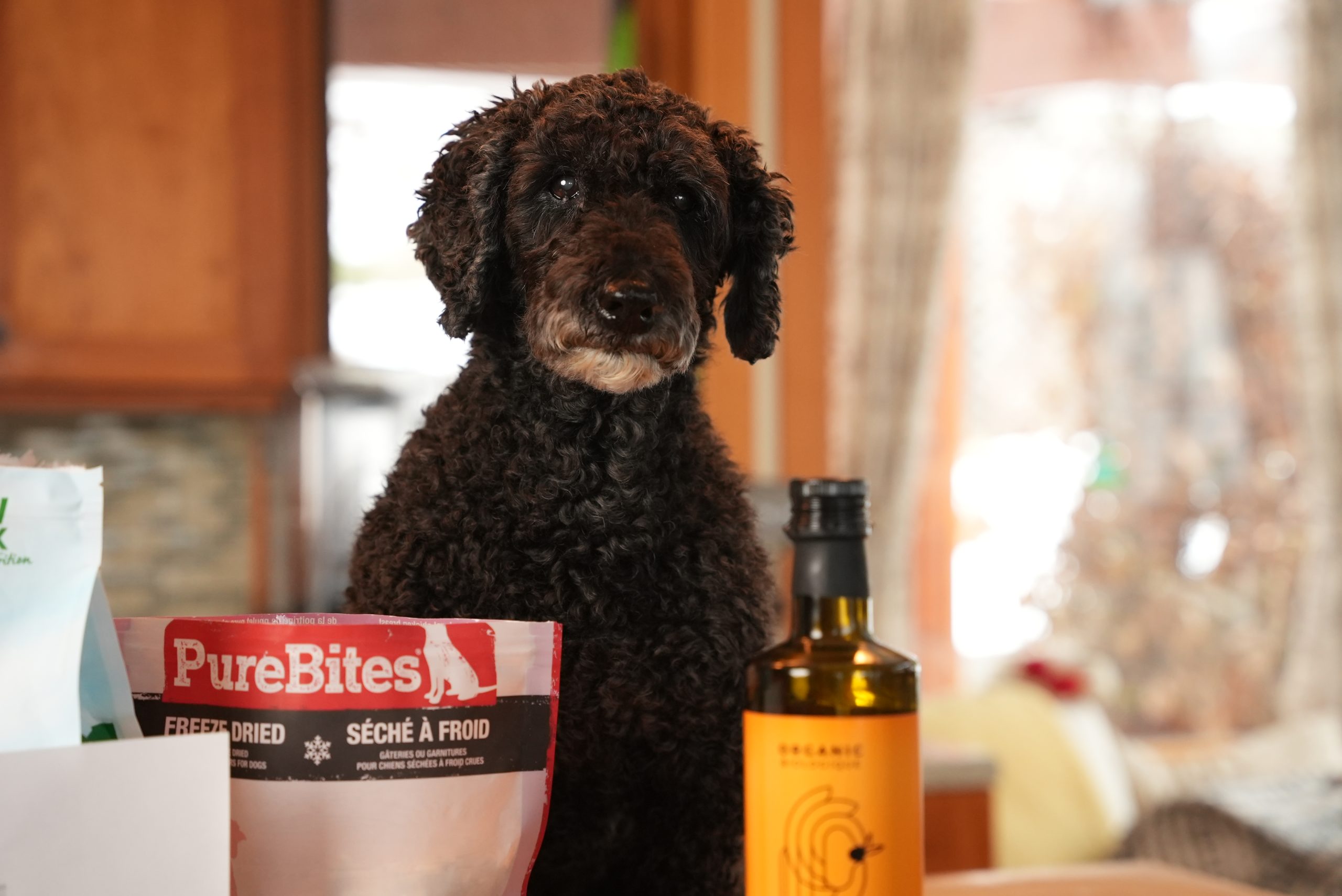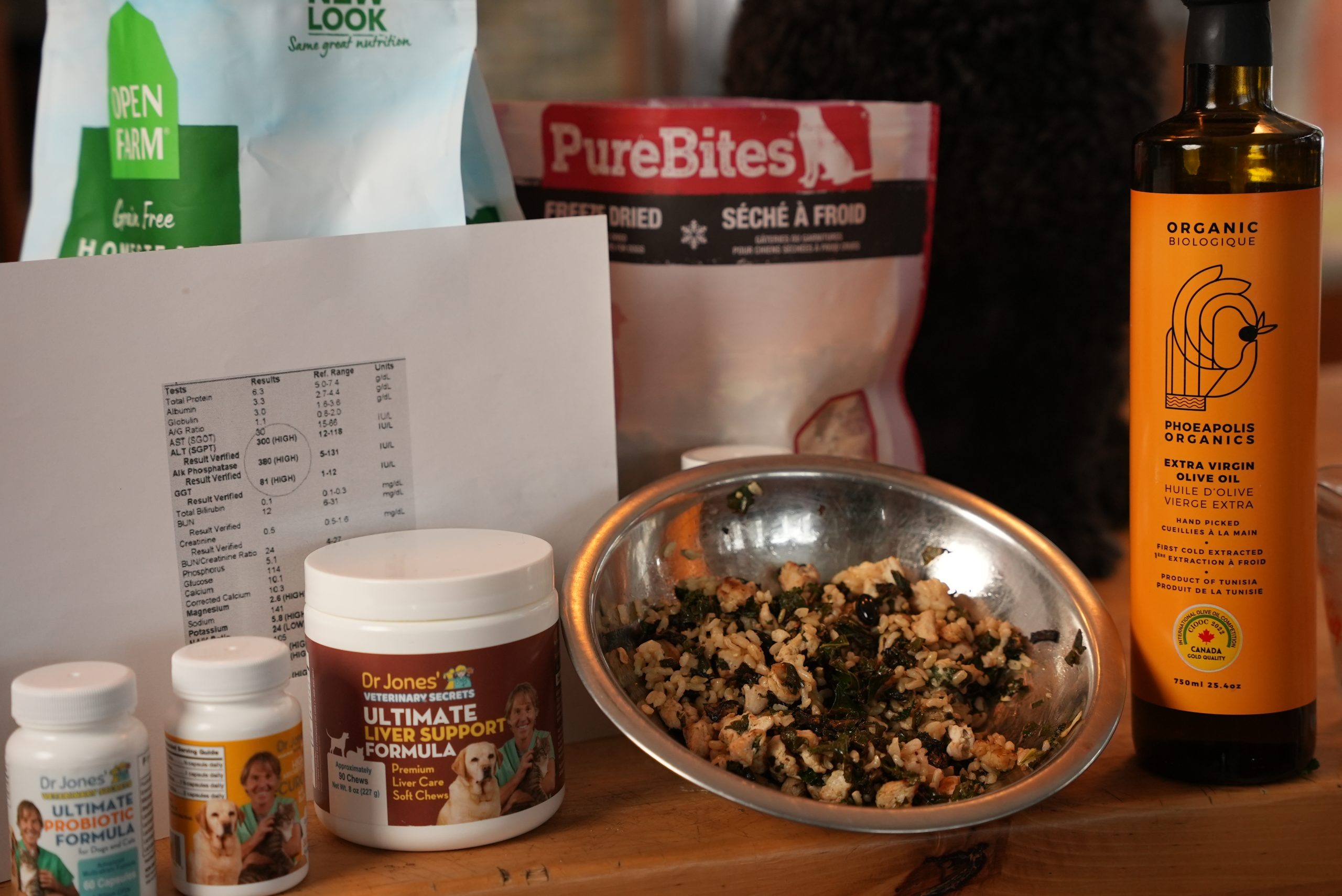Veterinarian Warns: Dog Treats Causing Liver Damage! | Tula’s Shocking Liver Diagnosis

Tula’s Elevated Liver Enzymes: What I’m Doing to Help Her and How You Can Protect Your Dog
Recently, Tula was diagnosed with liver disease. Her bloodwork showed elevated liver enzymes, and I suspect some of the things I’ve been feeding her may have contributed to it. In this post, I’ll share what you need to know to prevent this from happening to your dog.
Tula’s Diagnosis and What It Means
A little over a month ago, Tula went to the vet for a routine dental cleaning. She handled the anesthesia well, and the dental procedure went smoothly. However, the bloodwork revealed something significant: elevated liver enzymes, specifically ALKP, GGT, and ALT, which indicates some form of liver condition. The causes could range from infection and inflammation to nutrient imbalances, aging (she’s 13), or even liver disease such as hepatic lipidosis (fatty liver). It’s also possible there’s scarring or a growth.
Liver disease can be triggered by many factors, so I started by evaluating her diet. As with any pet, the food she eats can directly impact liver function. However, she hadn’t been on medications or exposed to toxins that could harm her liver. So, what was causing her liver problems?
Could Too Much Copper Be the Culprit?
One possibility that came to mind is copper toxicity, which can significantly damage the liver. Copper is concentrated in the liver, and if a pet consumes too much, it can cause liver disease. The problem with copper toxicity is that it’s easy to overfeed liver-based treats, as many popular dog treats contain liver as the primary ingredient.
For example, one of Tula’s favorite treats, Mighty Wolf, contains fresh ground pork liver as its first ingredient. While a small amount of liver is beneficial, it can be harmful if overfed. Just three tablespoons of liver exceed the daily copper requirement for an average adult human by 1300%, and for a small dog like Tula, just a teaspoon of liver could exceed her daily copper requirement.
Why Too Many Liver-Based Treats Could Be Dangerous
Liver is an excellent source of nutrients, but when given in excess, it can harm your dog. Many commercial dog treats, especially the soft, chewy varieties, contain liver as a main ingredient. While these treats are tasty and nutritious in moderation, too much liver can elevate copper levels and stress the liver.
I now realize that Tula’s daily intake of liver-based treats could have contributed to her liver condition. It’s a lesson learned, and I’m adjusting her diet accordingly.
Switching to a Cleaner, Safer Diet
Now that we know excess copper may have caused Tula’s liver problems, the next step is to adjust her diet. To support liver health, I’m focusing on clean, easily digestible proteins that are low in copper. This means avoiding beef, pork, and other red meats, which contain higher levels of copper. Instead, I’m feeding her proteins like chicken, turkey, and fish—foods that are lower in copper and gentler on the liver.
I also opted for freeze-dried chicken as a clean protein option, which is low in fat and rich in bioavailable nutrients that Tula’s liver can absorb without strain.
Supporting Liver Health with the Right Nutrients
When managing liver disease, it’s essential to focus on foods that are easy for the liver to process. I’ve started preparing homemade meals for Tula, which are rich in nutrients but easy to digest. Here’s a simple recipe I’m using for her:
- Chicken breast: A clean, low-fat protein.
- Brown rice: A carbohydrate that’s easy on the digestive system and packed with B vitamins.
- Kale: A green vegetable rich in flavonoids, known to have liver-healing properties.
- Olive oil: Used to cook the chicken and kale, providing healthy fats with anti-inflammatory benefits.
I cook the chicken, rice, and kale, then add a tablespoon of olive oil to the mix. This combination provides all the nutrients Tula needs for her liver, without overwhelming her system.
Liver Support Supplements: What Tula Needs
Diet alone isn’t enough to treat liver disease, so I’m also using supplements to support Tula’s liver health. The most important supplement for liver support is milk thistle, which has been shown in numerous studies to help with various types of liver disease. Tula is now taking a therapeutic dose of milk thistle (100 mg per 10 pounds of body weight daily).
Another supplement I’m adding is SAMe (S-adenosylmethionine), which has been studied for its benefits in liver disease. This supplement is particularly helpful in reducing liver inflammation and supporting the liver’s detoxification processes. Tula is also receiving a daily dose of 50 mg of SAMe for every 10 pounds of body weight.
Other Supplements to Consider
In addition to milk thistle and SAMe, I’m considering adding a multistrain probiotic to Tula’s routine. Probiotics help maintain gut health, which in turn reduces liver inflammation. I’m also keeping an eye on adding curcumin (95% curcumin), a powerful anti-inflammatory that can support liver healing.
Tula has been on a krill oil supplement for most of her life, which I’ll continue. It’s an excellent source of omega-3 fatty acids, which are anti-inflammatory and beneficial for liver disease.
A Final Recap: What You Can Do
If your dog has been diagnosed with liver disease or you’re concerned about their liver health, here’s a quick recap of what I’m doing for Tula and what you can do for your own pet:
-
Limit liver-based treats: Too much liver can overload the liver with copper, leading to damage. Feed liver treats in moderation, and avoid treats with liver as the main ingredient.
-
Adjust their diet: Switch to clean, low-copper proteins like chicken, turkey, and fish. Homemade food is a great option, but if you’re using kibble, make sure it’s low in copper and doesn’t contain liver.
-
Incorporate liver-supporting supplements: Make sure your dog is on a therapeutic level of milk thistle and SAMe to support liver function. Consider adding probiotics and curcumin as well.
-
Use omega-3 fatty acids: Keep inflammation at bay by adding a high-quality omega-3 supplement, such as krill oil.
I plan to have Tula’s bloodwork retested in the new year and will keep you updated on her progress. Hopefully, these changes will help reverse her liver disease. If your dog faces similar health issues, these steps might help you too.
Thank you for reading, and if you found this helpful, don’t forget to subscribe to Veterinary Secrets for more pet health tips.







Why are the food companies putting copper into all the foods? Kibble, lightly cooked and raw. I’m hearing a lot of pets are having high liver enzymes.
I’ve noticed they have not always done this. I personally think this is an issue and needs to be looked into.
Thank you
MaryRose
I discovered your youtube channel about a year ago and I’m grateful for it. You have natural based info on diet and how to keep our ‘Pawchildren’ healthy. Please keep on doing what you do….a very appreciative fan!